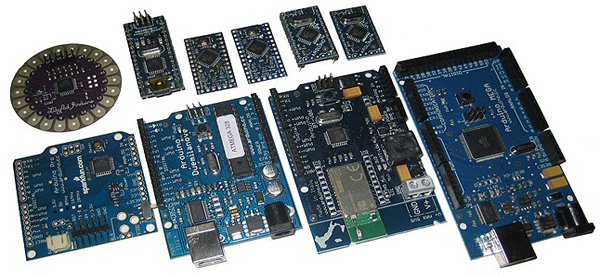Most common types of Arduino
Arduino is everywhere now a
day, every person who know a bit of electronics should heard this word once or
twice. So, what is this Arduino?
Arduino is an open source
electronics platform which is used for prototyping because this comes with
hardware and software which are easy to use and are flexible. This is the
perfect platform for artists, hobbyists or to the people who want to create
interactive objects. Arduino senses the environment as it is capable to take
input from various sensors and it outputs various processes by controlling
various actuators like lights, motors etc.
Types of Arduinos
There are various types in
Arduino boards; this discussion covers only most common Arduino boards.
1)
Arduino Uno –
This is the most common version of
Arduino boards. Most of the people consider Uno as they mention Arduino boards.
More discussion of this board canbe found in next chapters of this article.
2) Arduino NG, Diecimila,
and the Duemilanove (Legacy Versions) – the NG, diecimila, Duemilanove are considered as legacy versions of
Arduino Uno. Differences between common Uno and Legacy boards are –
·
Diecimila and NG are composed of ATMEGA 168
chipsets.
·
Both of these Arduino boards comes with jumper
settings near USB port so there a need of manual selection of USB or battery
power.
·
user need to hold the rest button on Arduino NG
for few seconds before uploading a program.
3) Arduino Mega
2560 – The mega is the second most used board of the
Arduino family. This board can be mentioned as big brother of UNO. This comes
with 256KB of memory which is 8 times higher than Uno. This board comes with 54
inputs & output pins, 16 pins are analog and 14 can do PWM. This board makes your
project more powerful but the size of the project increases.
4) Arduino Mega
ADK – this is the special version of Mega. This board
is a special design made to interface with Android Smartphones.
5) Arduino
LilyPad – this is also a special purpose board designed
for wearable technology. This board is designed to embed in fabrics with other
components which are connected with conductive threads. Wearable technology is
booming and this board is one effort to make it possible.
You can contact
Accitron Consultancy Services for your Arduino programming, interfacing and
testing needs.

No comments:
Post a Comment